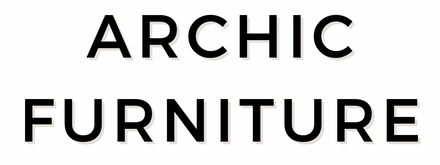

Boost Efficiency and Style with These Vet Reception Desk Ideas
How important is the reception desk in a veterinary clinic to you as a pet owner, especially compared to a hospital setting? When you walk into a vet clinic, the first thing you might notice is the reception desk. This desk is essential because it sets the tone for the entire visit. Creating a welcoming and organized environment.
A vet reception desk serves not only as a check-in point but also as a hub for information.
It's here that pet owners handle paperwork, set appointments, and ask questions. The design, layout, and materials used in these desks are important. It is for efficiency and first impressions.
Whether you are thinking about updating your clinic or starting anew, there are many options available. From modern modular styles to compact designs. Finding the right reception desk can cater to any space. Providing essential functions.
Key Takeaways
- A vet reception desk sets the tone for the clinic.
- It functions as a hub for appointments and information.
- Various styles and functionalities are available to meet any clinic's needs.
Importance of a Reception Desk in a Veterinary Clinic
A well-functioning reception desk is essential. It is for the smooth operation of a veterinary clinic. It serves as the first point of contact for pet owners. It helps in managing appointments, client inquiries, and clinic workflow.
Are you looking to create a welcoming and efficient environment in your veterinary clinic? Look no further than the animal clinic desk reception! This key piece of furniture not only serves as the first point of contact for your clients. It also sets the tone for their entire experience. With the right veterinary reception desk designs, you can ensure that your front office is organized, professional, and inviting.
A well-designed reception desk store front vet office can help streamline check-ins, appointments, and customer inquiries. Ultimately, this will improve the overall flow of your clinic. So invest in a high-quality reception desk to enhance your clinic's functionality. It also leaves a positive impression on your clients.
Objectives of an Ideal Vet Reception Desk
First Impressions: It is the first interaction a client has with the clinic. A friendly and efficient receptionist can set a positive tone for the entire visit. This helps in building trust and ensuring clients feel welcomed and valued.
Managing Appointments: A key responsibility is managing the clinic's schedule. This includes booking appointments, handling cancellations, and ensuring there are no schedule conflicts. A well-organized system helps in reducing waiting times. It ensures the clinic runs smoothly.
Client Communication: Effective communication is crucial. Receptionists provide essential information to pet owners. Answer questions, and relay messages to the veterinary staff. They also play a role in reminding clients about upcoming appointments. It helps in maintaining regular check-ups for pets.
Support for Veterinary Staff: Receptionists assist the clinical team by managing paperwork, essential for smooth operations in both hospitals and veterinary clinics. Entering data into the computer system, and handling payments. This support allows veterinary professionals to focus more on treating the animals. Also, less on administrative tasks.

What is a Vet Reception Desk?
A vet reception desk is a central feature in any veterinary office. It is located near the entrance. It serves as the first point of contact for pet owners entering the clinic. This desk is equipped with computers, telephones, and office supplies. Manage appointments, patient records, and customer inquiries.
Key Functions:
Appointment Scheduling: Critical in both veterinary clinics like Menasha and hospitals. The reception desk handles setting up and managing appointments. Various services like check-ups, vaccinations, and treatments.
Client Check-In and Check-Out: Clients are greeted. Their visits are logged in when they arrive. Upon leaving, any necessary payments and follow-up appointments are arranged.
Information Hub: It serves as an information center. Providing pet owners with details about treatments, procedures, and clinic policies.
Key Features:
Structure and Design: Modern vet reception desks are both functional and welcoming. They include ample storage for medical records, supplies, and personal belongings.
Technology: Equipped with essential office technology, these desks support efficient operations. Computers handle scheduling, billing, and patient records. Phones are used for communication with clients.
Sanitation: The design often includes easy-to-clean surfaces. Maintain a clean and welcoming space. It is crucial for any medical facility.
Importance:
First Impressions: The reception area sets the tone for the visitor's experience. A well-organized and thoughtful design can help put pet owners at ease.
Workflow Management: An effective reception desk ensures that the day's appointments run smoothly. Reducing stress on both staff and clients.
Customer Service: A strong focus on customer service at the reception desk. It reflects the clinic's commitment to care and professionalism.
Veterinary reception desks are a vital part of any vet clinic. Balancing the need for efficiency with the importance of creating a welcoming atmosphere.
Key Functions of a Vet Reception Desk
A vet reception desk is more than just a place to check in pets. It serves several key functions to ensure smooth operations at a veterinary clinic.
First, it handles appointment scheduling. Receptionists book visits, manage the clinic's calendar, and handle any changes or cancellations.
Another vital function is telephone management. They answer calls, provide information, and triage emergencies. Being the first contact, they set the tone for client interactions.
The reception desk also includes client check-ins and check-outs. When pet owners arrive, receptionists confirm details. They guide clients on the next steps. During check-out, they process payments and schedule follow-up visits.
Client education is another important role. They provide information on pet care, clinic services, and products available. This helps pet owners make informed decisions.
Handling medical records is another critical function. Receptionists maintain accurate, updated records. Ensuring that the vet has all the necessary information during appointments.
Inventory management is also part of the job. This includes tracking supplies and coordinating restocks when needed.
They help manage the waiting area. This includes maintaining a calm environment and addressing any client concerns.

Design Considerations
It is important to consider ergonomics, accessibility, and aesthetic appeal. These factors ensure the desk is functional and welcoming. It aligns with the clinic's branding.
Ergonomics in Reception Desk Design
Ergonomics involves creating a workspace that minimizes discomfort and strain for the staff. A well-designed desk should have adjustable heights for sitting and standing positions. Chairs should support proper posture. Computer screens should be at eye level to prevent neck strain.
Easy access to essential tools like phones, keyboards, and writing materials is vital. Keeping the workspace organized reduces unnecessary movements and enhances efficiency. Proper lighting also helps reduce eye strain. Improve comfort for the receptionist.
Accessibility Requirements
Accessibility is crucial to ensure all clients, including those with disabilities. It can effectively use the reception area. The desk should have sections at different heights. Accommodate both standing and seated clients. There should be enough space for wheelchairs. They should maneuver and approach the desk without obstruction.
Clear signage and a clutter-free layout are also important. Providing tactile indicators or Braille for visually impaired clients enhances accessibility. An accessible design considers the diverse needs of clients. Supports an inclusive environment.
Aesthetic Appeal and Branding
The reception area is often the first impression clients have of a veterinary clinic. It should reflect the clinic’s brand through colors, materials, and design.
For instance, using natural materials like wood and stone. It can create a warm and inviting environment. Incorporating the clinic’s logo and colors into the desk design. It can reinforce branding.
Modern lighting and thoughtful decorative elements contribute to a professional appearance. A good design balances aesthetics with functionality. Creating a space that is both attractive and practical.
Materials and Finishes
Choosing the right materials and finishes for a veterinary reception desk is crucial. It ensures the desk is durable, easy to clean, eco-friendly, and pleasing, which is crucial in hospital design.
Durable and Hygienic Materials
Durability and hygiene are essential for veterinary reception desks. Materials like laminate and quartz. They are popular for their strength and ease of maintenance.
Laminate is resistant to scratches and stains, making it ideal for high-traffic areas. Meanwhile, quartz is non-porous, which helps in maintaining cleanliness and preventing bacterial growth.
Stainless steel is another excellent option. It is because of its strength and resistance to corrosion. It is easy to sanitize, making it suitable for a medical environment.
Tempered glass can be used for countertops. Offering a sleek look while being shatter-resistant.
Plastic laminates and solid surfaces are also beneficial. These materials are hard-wearing and come in various colors and patterns. Allowing for customization while ensuring easy cleaning and sterilization.
Eco-Friendly Options
Eco-conscious choices can enhance the sustainability of a veterinary reception desk.
Recycled materials, such as reclaimed wood or recycled metal. They are gaining popularity for their minimal environmental impact. These materials provide a rustic and unique appearance.
Bamboo is a sustainable material that grows and regenerates without replanting. It is strong and has a warm, natural look.
Cork is another eco-friendly material that is also antibacterial and moisture-resistant, making it ideal for hospital design. Making it ideal for surfaces that need frequent cleaning.
Using non-toxic finishes like water-based adhesives and paints is crucial. Maintaining a healthy indoor environment. These options reduce the emission of harmful volatile organic compounds (VOCs). Ensuring a safer space for both staff and visitors.
Choosing the Right Finish
The finish of the reception desk affects both aesthetics and functionality.
Matte finishes are popular for hiding fingerprints and small scratches. Maintaining a clean appearance.
Glossy finishes offer a sleek and modern look. They need more upkeep to prevent smudges.
Textured finishes can provide a unique look and feel. Materials like textured laminates or fabrics can add depth and character to the desk. They can also be more forgiving of minor wear and tear.
Selecting a finish that complements the design of the clinic is important. Colors and textures that match the clinic’s theme. It can create a cohesive and welcoming environment.
Technology Integration
Technology integration enhances the efficiency of the vet reception desk.
For instance, many practices now use two-way texting. This allows staff to communicate with clients. Making it easier to manage appointments and inquiries. Clients can ask questions and receive quick answers without needing to call.
Mobile apps further simplify vet-client communication.
Apps like PetDesk enable clients to request appointments and receive reminders. Access prescription info, and even buy pet health insurance. Everything is streamlined and accessible from their smartphone, saving both time and effort.
Digital scheduling systems are also essential. They organize appointments to cut overlaps and double-bookings.
Staff can see all appointments at a glance and make changes as needed, similar to the systems used in hospitals. This reduces stress and increases productivity.
New tools help with time management at the reception desk.
Automated reminder systems ensure clients don't miss appointments. Receptionists can focus on more pressing tasks rather than making reminder calls.
Another significant advancement is cloud-based records.
Staff can access pet records from anywhere within the practice. Ensuring that they always have the information they need, right when they need it. This speeds up check-ins and consultations.
Key Benefits
Efficiency: Streamlined communication and scheduling.
Productivity: More time for critical tasks.
Client Satisfaction: Appanasha Pet Clinic prioritizes this alongside efficient hospital operations. Better engagement and trust.
Using these tools, vet reception desks can operate more smoothly. Allowing staff to focus on providing excellent care for their clients and patients.

Functional Features
A veterinary reception desk offers many functional features. They enhance efficiency and ease for both staff and clients.
Writing and Work Surfaces
Writing and work surfaces at a vet reception desk need to be spacious and durable.
They should accommodate computers, phones, and paperwork without clutter. Non-slip surfaces are helpful to prevent items from sliding off.
Many surface levels can help differentiate between work areas and spaces for clients. Materials like wood and stone not only provide durability. It also adds to the aesthetic appeal.
Well-designed surfaces ensure that the reception staff can maintain eye contact with clients. Fostering a welcoming environment.
Storage Compartments
Storage compartments are essential for keeping the reception area organized.
These should include drawers and shelves. Cabinets that can store forms, supplies, and personal items. Lockable compartments are important for securing sensitive documents and medication.
Easy access to these compartments improves workflow efficiency. Staff can retrieve needed items without leaving the desk.
Utilizing vertical space with overhead cabinets. It can also maximize storage while keeping the desk area tidy.
Seating Options for Staff
Seating for staff must focus on comfort and ergonomics.
Adjustable chairs with good lumbar support can reduce strain during long shifts, beneficial for touch device users in hospitals. Swivel chairs enable easy movement between different tasks.
Consideration for footrests and arm supports can further improve seating comfort. Upholstery materials should be easy to clean. Resistant to wear and tear, given the busy environment.
Providing flexible seating options. It ensures that staff can maintain comfort and efficiency throughout their shift.
Customization Options
Veterinary reception desks can be tailored in many ways to meet the needs of the clinic and its visitors.
Modular Designs
Modular designs are popular in veterinary reception desks. They allow for easy adjustments and reconfigurations.
Clinics can enjoy modular pieces that can be moved and reassembled. This flexibility is particularly useful for growing practices.
Desks with modular designs often include interchangeable parts. Shelves, drawers, and workspaces can be added or removed as needed. This makes it easy to adapt to changing needs without buying a whole new desk.
Modular reception desks can also be customized in materials, colors, and finishes.
Options include wood, metal, and laminate. Allowing practices to select pieces that best match the clinic’s aesthetic, whether in animal arts or hospital design.
Personalized Branding
Personalized branding is a crucial aspect of customizing a veterinary reception desk.
Clinics can have their logos and colors integrated into the desk design, similar to custom features found in hospital design. This makes the reception area look cohesive and professional.
Options for branding include custom colors, materials, and even signage. For example, a practice could have its logo laser-etched onto the front of the desk. Another option is to use branded colors on the desk and surrounding decor.
Personalizing the reception desk with the clinic’s branding. It helps create a strong first impression. It shows clients that the practice is professional and detail-oriented.
Adjustable Features
Adjustable features in veterinary reception desks enhance both functionality and comfort.
Height-adjustable desks are particularly valuable in both hospital and veterinary clinic settings. They can accommodate workers of different heights. Those who prefer to alternate between sitting and standing.
Another useful feature is adjustable shelving, commonly found in both hospitals and veterinary clinics like Appanasha Pet Clinic. This allows staff to arrange supplies and equipment. In a manner that best suits their workflow.
Desks with built-in cable management and movable partitions. They also contribute to a more organized and efficient workspace.
Ergonomic features such as keyboard trays and monitor stands. It can be added for employee comfort.
These adjustments can help reduce strain and increase productivity.

Top-Rated Reception Desk Brands
Several brands offer high-quality reception desks tailored for veterinary clinics. The following sections highlight two noteworthy brands known for their craftsmanship and design.
MDD
MDD is highly regarded for its sleek and modern reception desks.
Known for their clean lines and professional finish. Their desks can enhance the appearance of any veterinary clinic.
They use durable materials that stand up to heavy daily use. MDD desks often feature integrated cable management systems. Keep wires organized and unobtrusive.
Beyond aesthetics, MDD focuses on ergonomics. Their desks allow receptionists to work for long hours.
This combination of style, functionality, and durability makes MDD a favored choice.
Reception Counter Solutions
Reception Counter Solutions provides a wide range of custom-made reception desks.
Specializing in client-facing designs. They ensure that each desk meets the unique needs of a veterinary clinic.
Their desks come with many configuration options, helping clinics optimize their space. The use of high-quality materials ensures lasting performance.
Additionally, they offer various finishes and styles. Allowing clinics to match their décor.
Their attention to detail and focus on usability set them apart.
Reception Counter Solutions’ desks often include features like adjustable heights and ample storage, suitable for hospital design. These features help to create an efficient and welcoming environment.
Trends and Innovations
The design of veterinary reception desks has seen several trends and innovations.
Modular furniture allows flexibility in arranging spaces according to needs. These pieces can be reconfigured. Making them ideal for both small clinics and larger practices. Offering adaptability for various situations.
Sustainable materials are becoming more popular. Furniture made from recycled or eco-friendly materials supports environmental goals.
Clinics aiming for a green certification. They may enjoy incorporating such elements into their reception areas.
Technology integration has seen a significant rise. Kiosks and tablets can streamline check-ins and reduce wait times.
These devices not only modernize the look. It also improves the efficiency of administrative tasks.
A shift toward minimalistic designs provides a clean, clutter-free environment, which is essential in modern hospital design.
This can help reduce stress for both pets and owners. Eliminating large, bulky desks and opting for sleek, simple designs. It can enhance the aesthetic of the reception area.
Comfortable seating is also a priority. Providing various seating options, such as cushioned chairs and benches. It can accommodate different preferences and needs.
This is particularly important in reducing anxiety for pet owners awaiting their consultations.
Incorporating biophilic design elements, such as plants and natural light. It can create a calming atmosphere.
This design practice emphasizes a connection to nature. It can help soothe both humans and animals.
Common Mistakes to Avoid
1. Lack of Enthusiasm
Veterinary receptionists should always project enthusiasm.
Smiling before answering the phone can boost mood and prepare for any call, even a difficult one.
2. Poor Information Organization
Keep important information, like the pet poison hotline and clinic codes, accessible.
Having a list nearby helps avoid forgetting key details.
3. Ineffective Communication
Clear communication with both clients and the back practice is vital.
Miscommunication can lead to errors and unhappy clients.
4. Stress Management
Managing stress is a crucial part of the job.
It can be hectic, but handling stress well ensures better service to clients.
5. Overbooking
Avoid overbooking appointments. It leads to long wait times and frustrated clients.
6. Neglecting Follow-ups
Always follow up with clients, especially after their visit.
It shows care and keeps communication lines open.
7. Ignoring Feedback
Listen to client feedback. It can provide valuable insights for improving services.
Conclusion
The role of the veterinary receptionist is crucial. Ensuring smooth operations at the vet reception desk. Their ability to manage appointments, handle records, and communicate with pet owners. It makes them an invaluable part of the veterinary team.
Veterinary receptionists are the first point of contact for clients. They need to be friendly and professional to make a good impression. They are responsible for scheduling appointments. This requires asking the right questions to book exams, which is vital in a busy practice, much like in hospital settings.
They manage communication between the veterinary staff and clients. Whether it's passing along important medical information or addressing client concerns. Their role is to ensure clear and effective communication. This helps in maintaining client trust and satisfaction.
Key Responsibilities:
Appointment Scheduling: Efficiently booking appointments to keep the daily schedule running smoothly.
Client Interaction: Greeting clients, managing check-ins and check-outs, and addressing any concerns.
Record-Keeping: Maintaining accurate and up-to-date records of client and patient information.
Skills Needed:
Multitasking: Handling many clients and tasks at once. Such as phone calls and in-person inquiries.
Communication: Clear and empathetic communication to ensure client satisfaction.
Organization: Keeping the reception area and records well-organized.
Veterinary receptionists play a vital role in animal healthcare. Their skills and dedication help in delivering high-quality care. Ensuring a positive experience for both pets and their owners.
Frequently Asked Questions
How can I ensure my reception desk is ADA-compliant?
To ensure a reception desk follows ADA guidelines, check the height first. The desk should be no higher than 36 inches from the ground. This allows wheelchair users to access it.
There should also be a clear floor area in front of the desk, measuring at least 30 inches by 48 inches. This space ensures that individuals using mobility devices have enough room.
It's also crucial to provide lower transaction areas. At least one section of the desk should be designed for customers. If they are not able to reach a standard-height counter.
What materials are best for a durable and hygienic reception desk?
It's essential to consider both durability and hygiene.
High-pressure laminate is a popular choice. It resists scratches and is easy to clean.
Solid surfaces like Corian are also excellent options. They are non-porous. It means germs and dirt can't penetrate the material, making it more hygienic.
Stainless steel can be a good choice as well. It's very durable and can be sanitized. It is crucial for maintaining hygiene in a veterinary setting.
If you are still on the fence and not sure what to purchase, reach out to us, we recommend connecting with one of our furniture experts who would be delighted to help you find the perfect vet reception desk for you. You can reach out to us at:
Call/Text: (916) 262-7257. or;
Email: support@archicfurniture.com
We would be more than happy to help you find the perfect reception desk for your needs!



